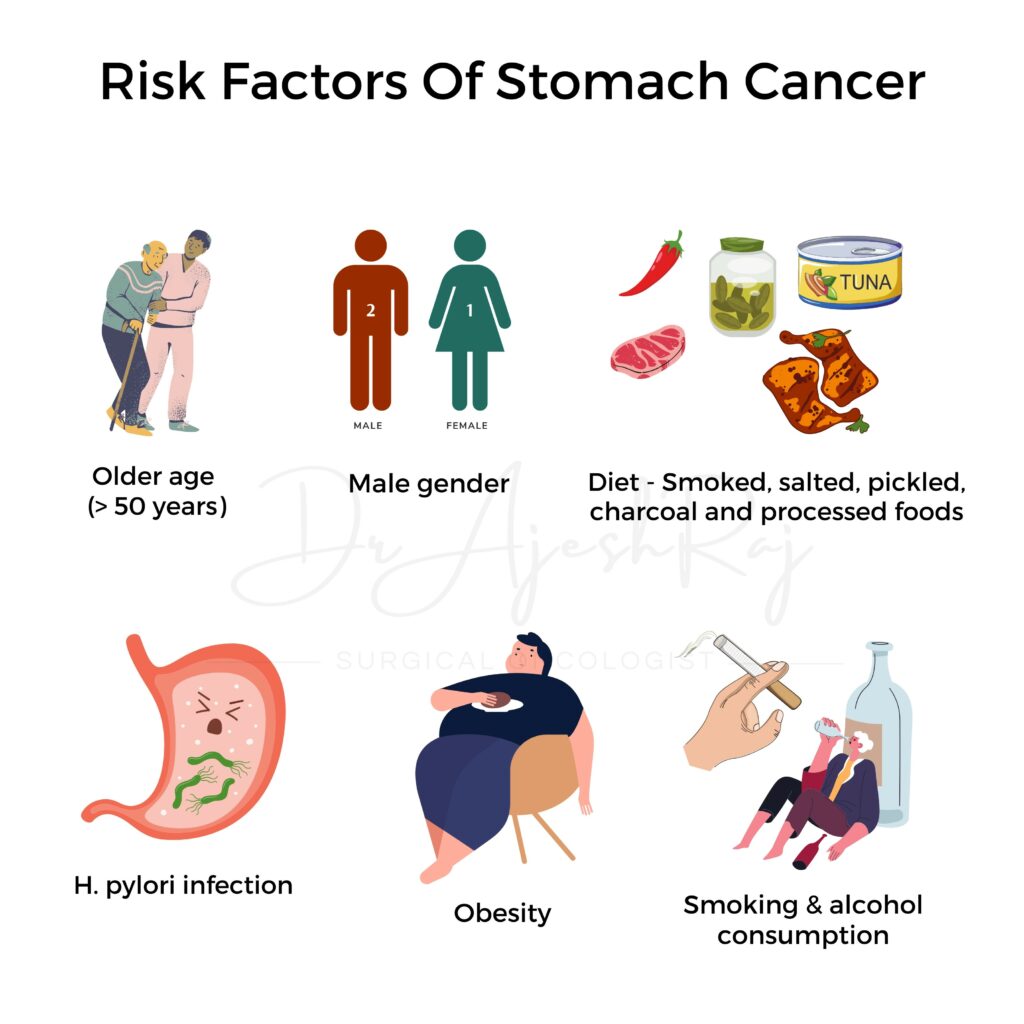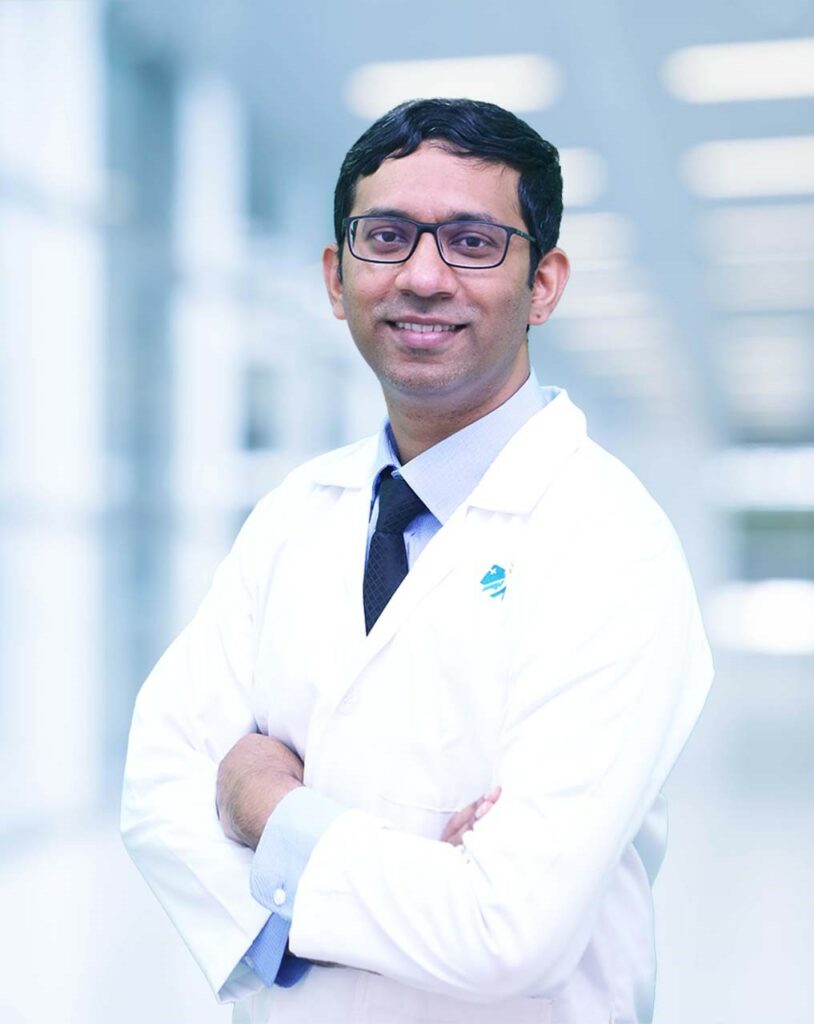
November being stomach cancer awareness month let us discuss some of the essential aspects of stomach cancers. You may have multiple questions about stomach cancer when you encounter the topic, and this article can be a great guide.
What is stomach cancer, and how often does it occur?
Stomach or “gastric” cancers are a significant burden of cancers in India. On average, about 40,000 new stomach cancer cases are detected annually in India, and it is one of the top 5 most common causes of cancer-related deaths. More than 2/3rd of these cancers are usually diagnosed at an advanced stage!
Who is at risk for developing stomach cancer?
Statistically, there is a higher incidence of stomach cancers in people over 50 years of age and males gender (males: female ratio = 2:1). Other important risk factors for the development of stomach cancers include:
- Diet: smoked foods, processed foods, and pickled foods.
- Tobacco smoking and alcohol intake
- Helicobacter pylori infection (bacterial infection)
- Obesity
- Gastroesophageal reflux disease (GERD)
- Rarely, familial and hereditary predisposition.

What are the warning signs and symptoms of stomach cancer?
Most people diagnosed with stomach cancer may not have any symptoms and may miss getting a timely evaluation done. Any recent changes in your body or food habits are an opportunity to get evaluated without delay. Discomfort after food intake, persistent heartburn or upper abdominal pain, early satiety, unexplained weight loss, vomiting, unexplained anemia, and jaundice can be some of the critical warning signs and symptoms of underlying stomach cancer.
How is stomach cancer diagnosed?
An endoscopy that passes a flexible tube with a light and camera attached to its tip passed into the stomach from the mouth can give valuable information about the stomach lining and diagnose peptic ulcers, erosions, inflammation, or cancerous growths which can occur in the stomach. A biopsy from the abnormal area can be taken at the same time. Cancer would then be required to be staged by a CT scan which can guide regarding the extent of the growth and its spread to other parts of the body.
How is stomach cancer treated?
Early stomach cancers can be effectively removed with endoscopic techniques and have high cure rates. More extensive tumors would require the removal of the stomach, partially or totally, along with its draining lymph nodes, medically termed as a radical gastrectomy. Various advances in surgeries have led to doing these complex procedures using laparoscopic and robotic techniques (minimal access) combined with the use of artificial intelligence.In addition, chemotherapy may be required to treat these cancers aggressively, depending on the cancer stage.
When detected and treated early, cancers have the best results and the highest cure rates. We must have a low threshold to get evaluated and guide anyone facing these symptoms. Let’s fight cancer together!

DR. AJESH RAJ SAKSENA
MS (Gen. Surgery), DNB (Surgical Oncology), FMAS, FALS (Oncology). Consultant Surgical Oncologist & Minimal Access Surgeon. Apollo Cancer Institute, Apollo Health City, Jubilee Hills, Hyderabad – 500 033 drajeshraj@gmail.com | www.drajeshraj.com
